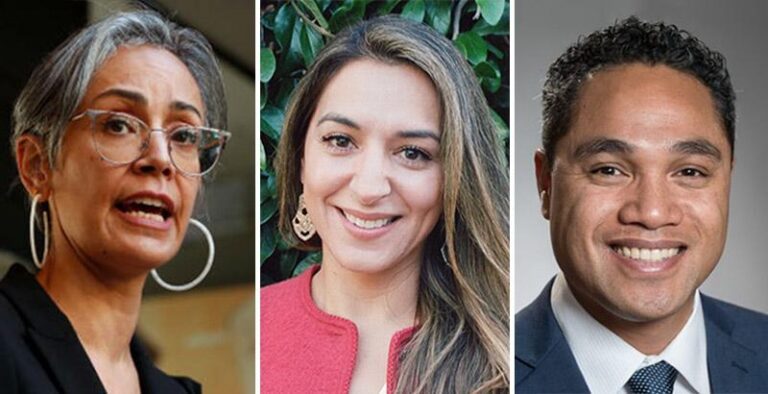The San Francisco school board has hit the brakes on its controversial initiative to rename 44 public schools after facing mounting criticism from the community and local leaders. The move to pause the extensive renaming process, which aimed to address historical and cultural concerns associated with existing school names, comes amid heightened tensions and calls for greater transparency. As the debate intensifies, stakeholders remain divided over how best to balance historical reckoning with community consensus in shaping the city’s educational landscape.
S.F. School Board Faces Backlash Over Controversial Renaming Initiative
The decision to halt the renaming process for 44 San Francisco schools comes amid widespread criticism from parents, educators, and community leaders who argue that the initiative was rushed and lacked sufficient public input. The San Francisco Unified School District had initially aimed to address concerns about historical figures and their legacies by changing several school names, but opponents raised concerns about the cost, community impact, and the criteria used for the renaming choices.
Following intense public backlash, the Board acknowledged the need for a more transparent and inclusive approach moving forward. Key points raised during the backlash included:
- Community engagement: Residents requested extended forums and surveys before final decisions.
- Financial implications: Concerns about the high costs associated with rebranding materials and signage.
- Historical context: Calls for deeper discussions regarding the legacy of names under review.
| Aspect | Community Concern | Board Response |
|---|---|---|
| Renaming Criteria | Lack of clarity and transparency | Plan to clarify and publish guidelines |
| Timeline | Too rushed and insufficient feedback | Process paused for further review |
| Costs | Budget strains and wasted resources | Reassess budget allocation and funding |
Community and Alumni Voices Oppose Rapid Name Changes
Feedback from longtime members of the community and alumni groups has mounted, urging the school board to reconsider the accelerated timeline for renaming. Critics argue that the process lacked adequate public input and has ignited tensions around heritage and identity, with many expressing concerns about the erasure of history without thorough dialogue. The opposition highlights the importance of preserving the stories tied to each school’s name and cautions against making swift changes that might overshadow these narratives.
Voices raised concerns over several key issues:
- The need for a comprehensive community engagement plan
- Potential loss of cultural and historical significance
- Financial implications associated with rapid rebranding
- Insufficient time allotted for thoughtful consideration
| Concern | Community Feedback |
|---|---|
| Engagement | Calls for town halls and surveys |
| History | Preserve legacy, contextualize names |
| Cost | Budget review needed before changes |
| Timeline | More time for deliberation requested |
Impact of Pausing the Renaming Process on School Identity and Legacy
The decision to halt the renaming initiative has sparked widespread debate among community members and education stakeholders who emphasize the crucial role school names play in shaping collective memory and local identity. Many argue that existing names, regardless of their controversies, serve as historical touchstones that link current generations to the district’s complex past. Pausing the process allows for a more deliberate, inclusive conversation to unfold — one that weighs tradition against progress and strives to respect the diverse narratives that characterize San Francisco’s communities.
Critics of the pause caution that maintaining controversial names without reform could undermine efforts to create welcoming environments in school settings. Supporters, however, highlight concerns that hasty changes risk erasing legacies that many residents still value. Key considerations raised include:
- Community cohesion: How renaming affects neighborhood identity and resident pride.
- Educational impact: The role of names in teaching local history and fostering dialogue.
- Legacy preservation: Balancing respect for historical figures with contemporary values.
- Administrative challenges: Budgetary implications and logistical complexities tied to rebranding efforts.
| Aspect | Potential Impact | Community Response |
|---|---|---|
| School Spirit | May be disrupted or strengthened | Mixed; depends on community engagement |
| Historical Awareness | Preserved through existing names or lost with changes | Divided; calls for educational programs |
| Budget | Significant spending on new signage and materials | Concerns over priorities |
Recommendations for Inclusive Dialogue and Transparent Decision-Making
To foster an environment of trust and mutual respect, it is crucial that voices from all community stakeholders are actively solicited and valued throughout the decision-making process. This includes parents, students, educators, and local residents who bring diverse perspectives and historical insights. Holding open forums, community surveys, and facilitated listening sessions can help ensure that the renaming discussions do not alienate or overlook important viewpoints. Transparent communication channels, such as regular updates on progress and clearly outlined criteria for evaluation, further empower the public to engage meaningfully and hold governing bodies accountable.
Moreover, establishing clear, consistent guidelines that outline the justification, goals, and potential impacts of renaming efforts helps maintain clarity and prevent misunderstandings or misinformation. Decision-making frameworks should integrate equity, history, and community sentiment to balance the desire for inclusivity with respect for cultural heritage. Below is a simple framework to guide inclusive and transparent dialogues:
| Step | Description |
|---|---|
| Stakeholder Identification | Map all affected groups and individuals |
| Information Sharing | Publish clear criteria and project status updates |
| Consultation Sessions | Host inclusive forums and listen actively |
| Feedback Integration | Analyze input and transparently incorporate into decisions |
| Final Review | Publish rationale and next steps openly |
The Way Forward
As the San Francisco school board presses pause on the renaming of 44 schools amid growing public backlash, the debate over how best to reconcile history and community values remains far from settled. Stakeholders from all sides continue to grapple with complex questions of identity, heritage, and inclusivity, underscoring the challenges inherent in addressing historical legacies within modern educational institutions. The board’s decision to halt the process signals a critical moment of reflection and dialogue as San Francisco charts its next steps.




